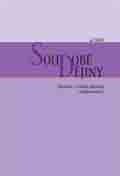1969–1989: chybějící pojem, či spíše nechuť k porozumění?
1969–89: Are We in Need of a Concept or Do We Simply Lack the Will to Understand?
Author(s): Petr PithartSubject(s): History
Published by: AV ČR - Akademie věd České republiky - Ústav pro soudobé dějiny
Summary/Abstract: The author is convinced that neither ‘totalitarian’ nor ‘authoritarian’ sufficiently describe Czechoslovakia after 1969. The fact that Czechs do not know quite how to classify the ‘normalization’ régime is interpreted here not only as constituting a problem for the culture of remembrance, but also as the cause of many wrong decisions having been made concerning the future orientation of the transformation policy in the 1990s, with exponents of the thesis of a totalitarian régime supposing that the Socialist state had been excessively strong, and demanding that the scope of governmental action be considerably restricted, and with representatives of the idea that following the ‘Prague Spring’ there had been a rather authoritarian régime in Czechoslovakia, underestimating, on the other hand, the degree to which social structures had been destroyed. Both sides advocated that economic transformation should be carried out as quickly as possible, while neglecting the proper establishment of the rule of law. This shortcoming made it possible for actors of the grey and black markets to maintain control of their capital into period after the change in régimes. They were even able to safeguard their assets by legal means, and often even to make them grow. The result is that society has lost much of its trust in the new democracy.
Journal: Soudobé Dějiny
- Issue Year: XVI/2009
- Issue No: 04
- Page Range: 688-698
- Page Count: 11
- Language: Czech

